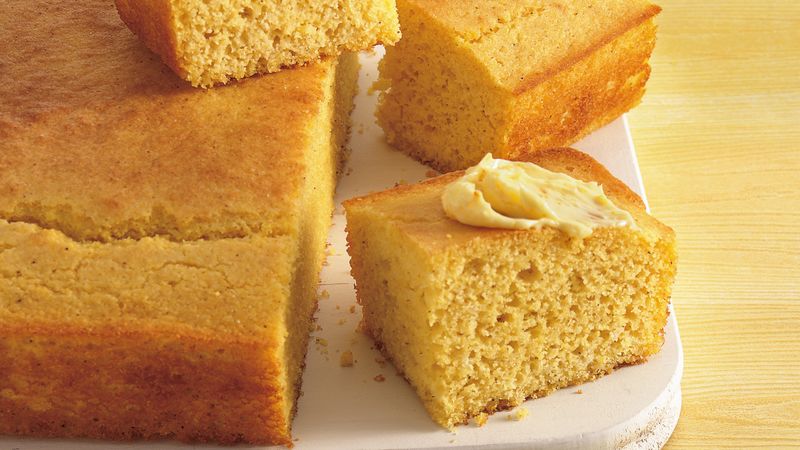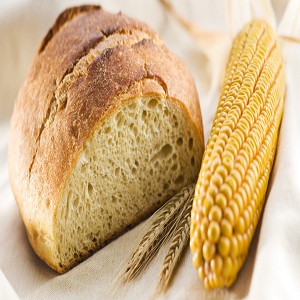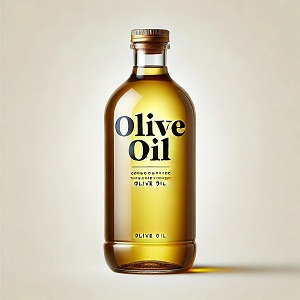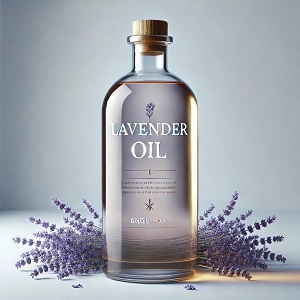
Cornbread brings a warm feeling to the heart.
Cornbread has a homey, old-school feel. This sweet, golden bread has found its way into many meals and memories from worldwide cultures. Cornbread, with its warm smell and texture, has a rare power to summon people for family gatherings or as simple food. Over the years, cornbread has gained popularity because of its taste, nutritional properties, and culinary versatility. This review of cornbread will cover every need, from health to personal and cultural importance.Rustic Grain Vitality
Rustic Grain Vitality
Table of Contents
| What is cornbread? Who can eat Corn Bread? Experience with Corn Bread (6 paragraphs) Suitability for All Ages Health Benefits of Corn Bread Benefits of Corn Bread for Skin and Hair Incorporating Corn Bread into the Diet Benefits of Corn Bread Five Paragraphs on Corn Bread The New York Times Pros and Cons of Corn Bread The advice (5 paragraphs) FAQs (10 paragraphs) Quick (5 paragraphs) |
What is cornbread?
Cornbread is a type of bread whose main ingredient is cornmeal, imparting its classic golden hue and touch of sweetness. While the association may be Southern or Native American, its history spans continents and cuisines. Cornmeal, ground from dried maize, is the main ingredient, giving it a distinctive moist and crumbly texture compared to other forms of bread. Cornbread can be baked, fried, or steamed; sweetened with honey or loaded with cheese, it can fit into any meal.Rustic Grain Vitality
Is Corn Bread Suitable for Everybody?
Cornbread is usually nonhazardous; the average person profusely feasts on it irrespective of age. It is particularly beneficial for anyone who would like something gluten-free, as there is no wheat flour in it, although some recipes may use a small amount mixed in for texture. The mild sweetness of cornbread makes it attractive to children. The fiber, vitamins, and minerals make it a good choice for adults and seniors. However, users with an allergy should avoid it and opt for recipes that limit the amount of sugars and fats the readers add to ensure they stay healthy.
Cathy Lin: The New Corn Bread I Think Needed
Para 1: We served cornbread as a side to our dinners at home. It was crumbly and mildly sweet, the ultimate comfort food that transported back to home and family gatherings.
Over the years, I learned to love cornbread for its adaptability. It was a savory side to meals like chili or sweetened with some honey as dessert. One of the most attractive aspects is that it works well with many flavors.
Paragraph 3: Remember the first time I decided to make cornbread from scratch? Moreover, mix it with milk, eggs, and sweetness. It was worth the effort just for the smell it produced while in
One of the best things about cornbread is that it is equally at home in casual breakfasts and holiday dinners. It has become a reliable choice for those who want something quick and comforting.
Paragraph 5:sensitive to health, the nutritional value of cornbread. It is a healthy alternative to other less-natural bread, and the ingredients are minimally processed; good about eating it.
Cornbread recipe is the only one I make today (paragraph 6 of text): Soaked in companion, dunked in soup, or paired with a potential entreé continuously hits the spot of heat and heartiness.Rustic Grain Vitality
Suitability for All Ages
The healthy ingredients in cornbread also guarantee that people of all ages can consume it. Its optimal combination of carbohydrates, fiber, and vitamins will benefit children, adults, and older people. It provides energy and good taste for the young; older people can use it as food with a soft texture and easy digestion. Nonetheless, like any bread, it should be eaten moderately. Please continue reading for people who estimate their starch consumption or attempt to limit their weight.
Health Benefits of Corn Bread
Cornbread has good-for-you nutrients, thanks almost exclusively to cornmeal. It contains dietary fiber, which assists digestion and supports a healthy digestive system. Second, cornmeal is high in antioxidants such as lutein and zeaxanthin, which support eye health. Third, cornbread is a complex carb with plenty of energy that does not spike blood sugar, as in simple carbs. Corn also provides essential vitamins and minerals such as magnesium, phosphorus, and B vitamins for energy production and metabolic function.Rustic Grain Vitality
Benefits of Corn Bread for Skin and Hair
Although the primary appeal of cornbread comes from its sustenance as a source of diet, the vitamins present in cornmeal can promote sound skin and hair. Corn is high in antioxidants, which may protect skin cells from oxidative stress and help reduce signs of aging. Corn contains B vitamins and E that help keep skin elastic and regenerate cells. While it is not a topical solution, incorporating cornbread into the diet regularly can help maintain healthy skin and hair as it provides beneficial nutrients.
How To Incorporate Corn Bread In Diet
Sweet cornbread bakes are ultra-versatile, perfect for a slate of meals. Stews, soups, or salads can accompany it, but it is often eaten alone for breakfast, buttered, or spread with jam. To make it savory, stir some herbs or cheese into the batter before baking. Use it, too, crumbled on salads as a piquant crouton replacement or blended with a small quantity of yogurt or cream cheese for added velvety-ness. It gives the diet a variety of creative ways of using cornbread.
What Is Good About Corn Bread
Free of Gluten: Suitable for someone with gluten sensitivity (if not made with wheat flour).
Rich in Nutrients: Full of vitamins and minerals necessary for health
Neutral Taste: Suitable for either sweet or savory dishes
Simple to prepare with essential ingredients that make it ideal for busy weeknights!
Cultural Significance: Has a history and context in many cultures.
Studies may be trusted Corn Dough Studies:
1st paragraph: Alkhalidy said cornbread holds health benefits in part due to the fiber and antioxidants it possesses, as numerous studies have stated. Cornmeal has a high fiber content, and research says that it encourages a healthy bowel because it helps pass stool regularly.
In the second paragraph, more studies have shown that antioxidants, such as lutein and zeaxanthin, benefit the eyes. They reduce the risk of cataracts or age-related macular degeneration.Rustic Grain Vitality
Over the years, research has studied it and its impact on blood sugar levels. Many of these studies showed that foods made with(think, for example, preparing corn bread) can be an excellent source of slow-release energy for your body compared to consuming refined grains, which is suitable for controlling blood sugar levels.
Studies on heart health benefits suggest that cornbread contains fiber, which can contribute to cardiovascular health through reduced cholesterol (20).
Corn is not devoid of vitamins and minerals, however. Studies on vitamin content show that cornmeal contains significant amounts of B vitamins and magnesium, which can contribute to energy production and muscle function 8.
Important advice
These paragraphs could explain how cornbread might be eaten daily without everyone gorging themselves. Suggestions include
- combining it with high-protein foods to balance blood sugar,
- choosing recipes that do not add much sugar and
- trying a healthier alternative by adding seeds or nuts.
They may also stress the need to eat cornbread as a balanced diet.
Cons and pros
This table provides a quick overview of cornbread’s advantages and disadvantages.
| Pros | Cons |
| Gluten-free – Suitable for gluten intolerance. | High in carbs – May not be ideal for low-carb diets. |
| Rich in fiber – Aids digestion and promotes satiety. | Dense texture – May be heavier than other breads. |
| Good source of vitamins – Contains vitamin B and essential minerals. | Can be high in sugar – Some recipes add sugar, making it less healthy. |
frequently asked questions
What are the health benefits of natural cornbread?
Cornbread is rich in fiber, vitamins, and minerals, which, due to its complex carbohydrates, promote digestion and heart health and help regulate blood sugar levels.
Is cornbread suitable for people with gluten intolerance?
- Cornbread is naturally gluten-free, making it suitable for those with gluten intolerance or celiac disease.
Can people with diabetes eat cornbread?
- People with diabetes can eat cornbread in moderation, as it contains fiber and complex carbohydrates that help maintain stable blood sugar levels.
Does cornbread aid in weight loss?
- Cornbread contains fiber that promotes a feeling of fullness. As part of a balanced diet, this may help curb appetite and aid in weight control.
What is the difference between cornbread and wheat bread?
- Cornbread is gluten-free and has a different taste and texture than wheat bread. It is also generally lower in calories and higher in fiber.
Can cornbread be made at home?
- Cornbread can be made with corn flour and essential ingredients like water and salt. Additional flavors can also be desired.
What is the best way to enjoy cornbread?
- Cornbread can be soup, a snack with honey or cheese, or a side dish with traditional meals to enhance variety.
Does cornbread contain reasonable amounts of vitamins and minerals?
- Yes, cornbread contains many vitamins and minerals, such as vitamin B, iron, and magnesium, which support overall health.
Is cornbread suitable for children?
- Cornbread is a nutritious choice for children, providing them with energy, fiber, and essential vitamins and minerals for healthy growth.
Can cornbread be frozen for later use?
- Yes, corn
In Short: A Golden Meal To Add to the Rotation
Corn Bread is not only very tasty and versatile but also very nutritious. Its unique flavor profile and nutrient properties make it a perennial favorite across cuisines and generations. As a warm and healthy side dish or snack, cornbread warms the heart and adds nutrition to the table.Rustic Grain Vitality
Quick Summary .
In summary, cornbread is appropriately nutritious for different dietary requirements, relevant in history and culture, and diverse for meal planning. The focus is on cornbread as a wholesome, affordable option for anyone seeking to elevate meals with a versatile, nutrient-dense food.
However, this format offers a valuable and entertaining review in a relaxed, friendly style for any specific section or service.



